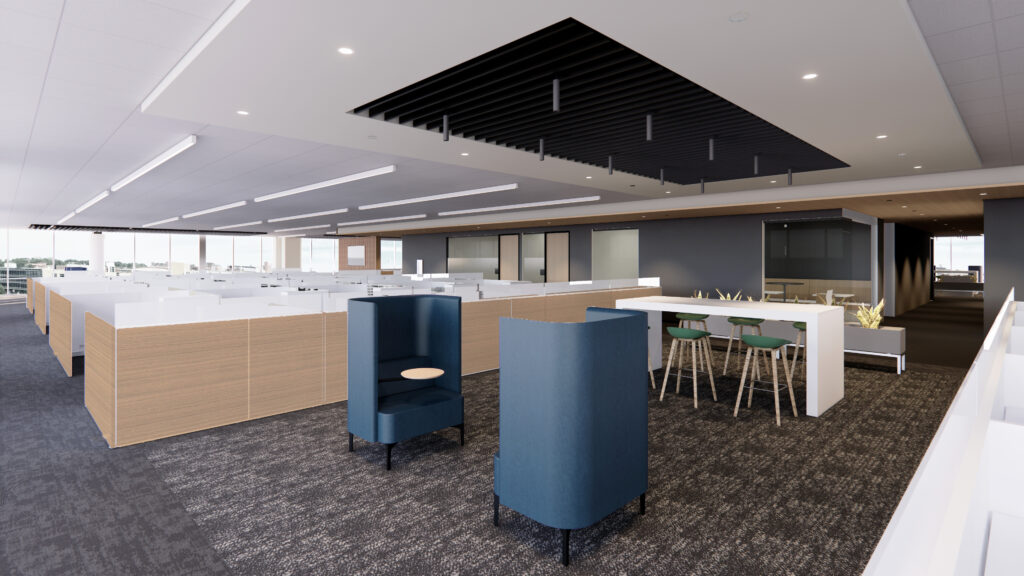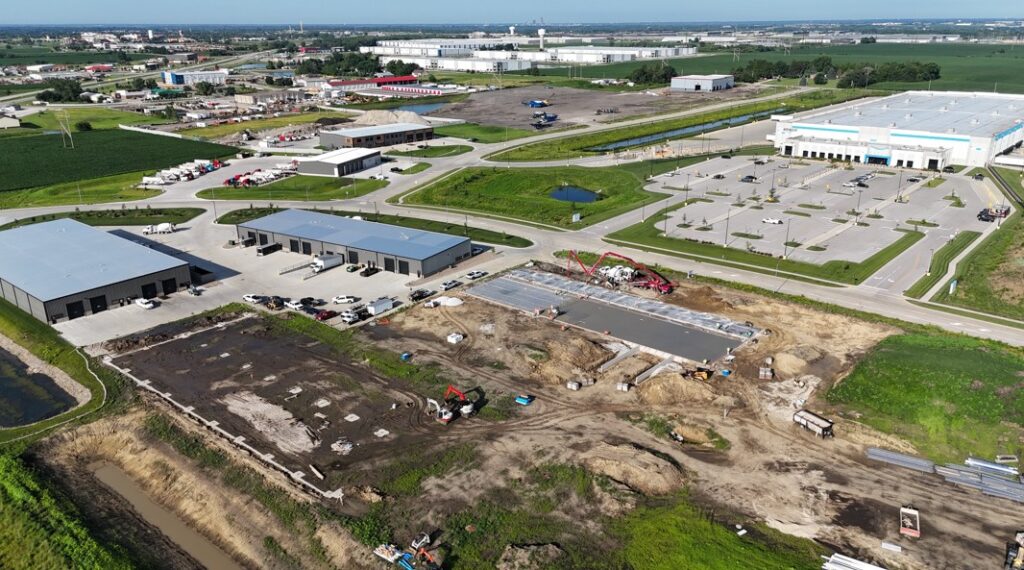People spaces
Gravitate Coworking provides different steps to the office

KENT DARR Mar 27, 2019 | 5:01 pm
4 min read time
916 wordsBusiness Record Insider, Real Estate and DevelopmentMaybe you’ve heard about We. It’s a Boston-based company, formerly known as WeWork, that in the beginning offered what might best be described as fleeting office space. If you needed a place to plant a laptop for a few hours, WeWork had a space.
Similar, but not identical, services have been offered in Greater Des Moines for several years. Regus has provided longer-term leasing and after opening its first office hub at West Glen Town Center added locations at Hub Tower in downtown Des Moines and in Johnston. Lawmark Capital’s Space2Work offers turnkey executive offices at the Financial Center.
When the Business Record hosted a Newsroom 515 event Jan. 24, we wanted to get a better handle on the concept of coworking, or sharing office space. The event, one in a series in which select groups of our subscribers participate in videotaped discussions on various issues, also was part of the preparation for our soon-to-publish Annual Real Estate Magazine.
Geoff Wood, founder of Gravitate Coworking, was among the office experts who participated in Newsroom 515. Gravitate Coworking opened a second location in Valley Junction in West Des Moines and is soon to move from its downtown location into renovated space at 500 Locust St. That new space has the unique amenity of what Wood calls a stairitorium, a structure that gets you from one level to the next but also provides an area for meetings, lectures and lunch-and-learns, and will be available for member-tenants and offered for rent to outside groups.
Also on the panel were Kim Augspurger, president and owner of Saxton Inc., Kate Byus, vice president with JLL, Tim Hickman, principal with Substance Architecture, and Adam Kaduce, senior vice president at R&R Realty Group.
In this excerpt from the roundtable, Wood talks about coworking. An edited transcript of the full conversation will be available in the Annual Real Estate Magazine, which will publish on April 26. At that time, video of the discussion can be watched in its entirety at www.businessrecord.com/arem.
Here’s an excerpt from our conversation about coworking:
Who uses coworking spaces, and what’s the future for that type of product?
Wood: [Gravitate Coworking] has been here for five years. When I came back to Des Moines in 2009 there were coworking spaces here that I think were as old as 2007. So it’s actually been here for quite a long time, but maybe not as known. Maybe we didn’t know what that meant when people said coworking.
Our typical users are individual workers. So a lot of times that is someone who is an entrepreneur, a solo entrepreneur or small team. It is a freelancer who wants to get out of their house or out of the coffee shop and be in a professional collaborative space, or could be for a remote employee. I don’t typically record them as tenants. They’re members to me. It’s kind of like a gym membership where they join each month rather than have a lease or something. Half of them are remote workers. So their company is in Austin or San Francisco or something, but they’ve chosen to live in Des Moines and want to get out and be part of an environment.
I think more and more what we’re seeing is kind of Fortune 500 enterprise clients use our space. And not just the individuals we’ve had, but we start to see teams and people locating to Des Moines and saying, “It’s important that we have a type of presence there. Maybe Principal is a client of ours. But rather than knowing that we’re going to be around for 60 months or something, let’s try this and see if we can build our team in a coworking space. And if we ever get to a point where it’s not serving our needs, we’ll go out and get a traditional lease. But for now while we’re experimenting, let’s just do the flexible month to month.”
How does it differ from businesses that offer temporary office space?
Wood: I think what they offer is more individual office space on a 12-month lease. We specifically lead with the flexibility. But it is month to month. So you may start with a floating membership, which would be like the coffee shops style.You sit down at the desk, it’s yours while you are here. You take your stuff with you at the end of the day. You might graduate to a dedicated desk, which is a desk where the space is only used by you. And then you might move up into the office environment. We just do that month to month as people change.
I think the other big thing that we do is focus on people more than space. We have top of the line furniture. We do all those things. In our newest space we’ve actually had architects design it for the first time rather than us just fitting into existing buildings, which is what we’ve always done in the past.
People come to us looking for office space. They stay with us because they like the community. They want to be around other people. They want to grab coffee together. They want to be able to talk about the game. That type of thing that you were doing at a regular office, but these are people that are used to working from home, either because their company is on the other side of the computer screen or just because they’re doing something by themselves.









